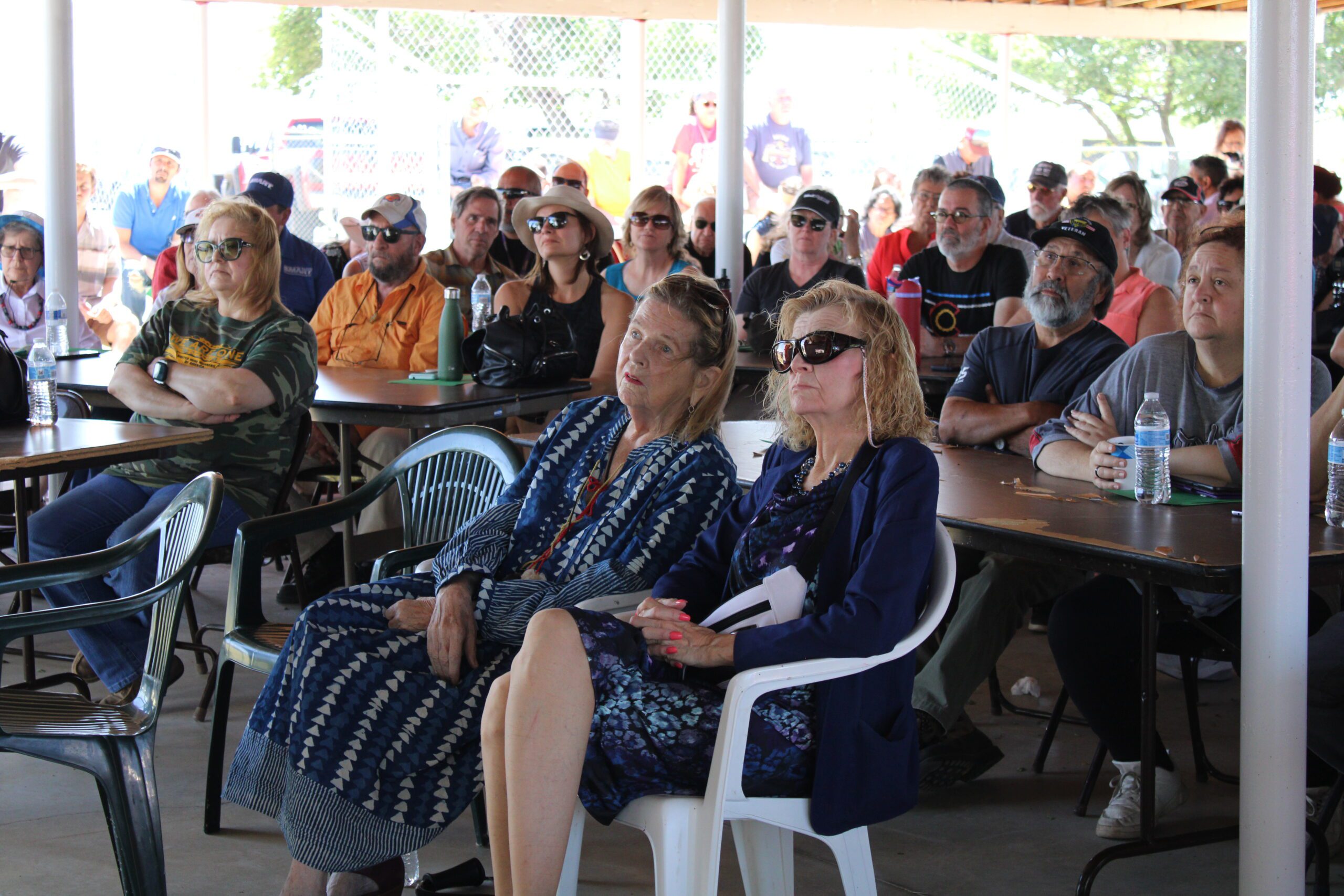FOR IMMEDIATE RELEASE
May 14, 2025
(Washington, D.C.)—Unions across nursing, education, mining and manufacturing industries, along with a manufacturer of personal protective equipment (PPE), today sued the Trump administration to reverse the illegal dismantling of the National Institute for Occupational Safety and Health (NIOSH), a component of the Department of Health and Human Services (HHS).
The Trump administration and HHS Secretary Robert F. Kennedy Jr.’s reckless cuts to NIOSH—made under the direction of Elon Musk’s DOGE—have shut down vital programs and will result in the firing of more than 85% of the staff by July. The chaos of dismantling, temporarily recalling and piecemeal reinstatements of staff has wreaked havoc on workers’ lives, discontinuing services and programs altogether and creating total disruption in the benefits and protections that workers and the public depend on.
Public Citizen Litigation Group and the AFL-CIO’s Office of the General Counsel filed the lawsuit in the U.S. District Court for the District of Columbia on behalf of unions, workplace safety experts and a PPE manufacturer. The plaintiffs include the AFL-CIO, American Federation of Teachers (AFT), Association of Occupational and Environmental Clinics (AOEC), California Nurses Association/National Nurses Organizing Committee (CNA/NNOC), Dentec Safety Specialists Inc., the Machinists (IAM), National Federation of Federal Employees (NFFE-IAM), National Nurses United (NNU), New York State Nurses Association (NYSNA), United Auto Workers (UAW), Mine Workers (UMWA) and United Steelworkers (USW).
As the complaint explains, the cutbacks directly threaten the lives of workers whose safety and health depend on NIOSH, detailing cuts to its vital, congressionally mandated work that all depend on the expertise throughout the whole of the agency, including:
- Certifying respirators and testing other PPE and technologies used by workers across industries, including in health care, mining, manufacturing, firefighting and construction, and preventing counterfeits from entering the market.
- Conducting critical mine safety research and providing medical screenings for coal miners.
- Investigating workplaces to identify and mitigate exposure to toxins and potential health hazards.
- Funding the formal training for future industrial hygienists, epidemiologists, physicians, and other occupational safety and health professionals through universities and field-based internships.
- Providing scientific and technical support to enable medical compensation for nuclear weapons workers and Sept. 11 first responders.
On Tuesday, following a sustained outcry from unions, public health experts, and lawmakers, HHS rescinded the layoff notifications for approximately 300 workers, a fraction of the total NIOSH staff of approximately 1,000 workers. The move came after a judge granted a temporary restraining order late Friday, ordering the Trump administration to stop any moves intended to implement Trump’s February executive order directing agencies to begin major reorganizations. Today’s complaint calls for all NIOSH workers to be reinstated across the agency so that NIOSH can resume its work.
Each year, more than 5,000 workers die from injuries on the job, 135,000 workers die from occupational disease, and millions more are injured. Without NIOSH, these numbers will increase. The lawsuit follows a May 1 letter from the AFL-CIO and 27 unions urging Congress to intervene to reinstate NIOSH staff and restore its programs.
“By gutting NIOSH, Elon Musk and his DOGE won’t just be cutting corners—they are cutting lives short and placing working people in danger. Working people have fought too hard for these critical protections to now watch an unelected billionaire dismantle them and take us back to a time when chronic disease and death on the job was commonplace,” said AFL-CIO President Liz Shuler. “I’m proud to stand shoulder to shoulder with unions and partners today in filing this lawsuit to challenge this illegal, reckless and potentially deadly assault on worker health and safety.”
“The Trump administration’s rash move to decimate the NIOSH workforce is not only unlawful but shortsighted,” said Bonnie Robin-Vergeer, Public Citizen Litigation Group attorney and lead counsel in the case. “Established by Congress, NIOSH is often called a ‘small but mighty agency,’ and Congress has repeatedly recognized its importance each time it appropriates funds to the institute to carry out its critical work. In bypassing Congress and effectively shutting down the agency, Health and Human Services violated federal laws and exceeded its power under the Constitution.”
“NIOSH’s job is to protect workers on the job and its gutting is a body blow to the millions of Americans who rely on it to ensure they return home safely every night to their families,” said AFT President Randi Weingarten. “Make no mistake: Lives will be lost because of the illegal actions of Elon Musk and his DOGE chain saw, because NIOSH is the principal government agency to ensure work doesn’t leave people sick or injured. These attacks have nothing to do with ‘efficiency,’ and everything to do with mindless and arbitrary cost cutting. The nobbling of NIOSH is Exhibit A of the human cost of DOGE’s blatantly unconstitutional actions—and it is why we are fighting in both the courts and the court of public opinion.”
“While it was announced yesterday that some NIOSH staff will be brought back, occupational health and safety specialists and the workers they serve need all NIOSH staff and programs to be restored immediately,” said Amber Mitchell, executive director of the Association of Occupational and Environmental Clinics. “The Trump administration’s indiscriminate cuts to research, training and other essential NIOSH services will cause more disabling injuries, illnesses and deaths to American workers. As an organization that represents clinics that diagnose and treat injuries and diseases caused by work, we see firsthand how important NIOSH is for our patients.”
“The illegal firing of NIOSH workers and the gutting of critical safety programs by Elon Musk and the Trump administration will have devastating consequences for American workplaces,” said IAM International President Brian Bryant. “This reckless action threatens our preparedness for workplace violence, emergency planning, chemical and biological threats, and vital worker training. This lawsuit will help us to restore NIOSH’s mission and protect the safety and health of workers throughout our nation.”
“Federal employees and workers across the country rely on NIOSH to ensure workplaces are safe,” said NFFE-IAM National President Randy Erwin. “It is unconscionable that the Trump administration is attempting to dismantle a critical agency that is responsible for keeping American workers safe. The health and wellness of firefighters, nurses and so many other essential civil servants is our highest priority. We are proud to join our union partners in challenging this reckless action.”
“Nurses across the country are proud to join our union siblings to fight back against this attack on working people,” said Sandy Reding, registered nurse (RN) and president of California Nurses Association/National Nurses Organizing Committee (CNA/NNOC). “As nurses, we rely on NIOSH to keep us safe and healthy, especially the agency’s work to inspect and certify N95s and other respirators. Dismantling this agency will not only put workers and patients in danger, it will make it harder to hold executives accountable to protecting us and our patients. Without NIOSH’s oversight on respirators, our employers will undoubtedly race to the bottom, jeopardizing our lives and our patients.”
“Millions of workers, including nurses and our health care colleagues in hospitals across the country, rely on NIOSH to help keep us safe at work,” said Nancy Hagans, RN and president of National Nurses United (NNU) and New York State Nurses Association (NYSNA). “Trying to destroy agencies like this makes clear the current administration doesn’t care about working people, aligning them with the hospital industry. Our recent experience during the pandemic demonstrated that health care executives can’t be trusted to keep us and our patients safe, which is why we are fighting to reinstate NIOSH.”
“For decades, NIOSH has conducted vital research and offered important recommendations to help prevent work-related injury and illness,” said UAW President Shawn Fain. “The agency provides workers with guidance and support on numerous important issues, including chemical hazards, workplace violence, first responder and firefighter safety protocols, preventable workplace fatalities, and many more. The attack on NIOSH workers will have far-reaching negative consequences for workers in this country and beyond, and we demand they be reinstated.”
“For generations, the United Mine Workers of America has fought to protect the health and safety of coal miners and all working people. The dismantling of NIOSH and the elimination of its critical programs—like black lung screenings—puts miners’ lives at risk and turns back decades of progress. This lawsuit is about holding decision-makers accountable and making sure every worker has the right to come home safe at the end of the day,” said Cecil E. Roberts, International President, United Mine Workers of America.
“USW members working in a wide range of industries from mining and manufacturing to chemical production and oil refining have all seen the tangible, on-the-ground benefits of NIOSH’s work. This includes providing resources to both workers and employers to help prevent occupational exposure, spearhead health hazard evaluations, certify personal protective equipment and so much more. There is no doubt that the administration’s baseless assault on NIOSH puts workers and their communities in peril,” said USW International President David McCall.
“Many of our members responded to the 9/11 tragedy, and many others also supported survivors in their recovery. As a result, many of our members have gotten sick and some have died. We cannot allow those who risked their lives and made the ultimate sacrifice to be forgotten and neglected,” said Joe Puleo, president of AFSCME Local 983. “We must stand together and make sure that these heroes are afforded all that we can provide for them in their time of need. Any reduction of the staff at NIOSH is a reduction in our American principles.”
“My factory has been manufacturing NIOSH-approved respirators for more than 25 years,” said Claudio Dente, Dentec Safety Specialists president. “The NIOSH respirator approval program ensures respirator manufacturers meet the stringent quality control process to consistently produce a respirator that protects and saves lives. Without NIOSH, we are condemning workers and the general public to serious illness and possibly death.”
The complaint can be found online here.
###









